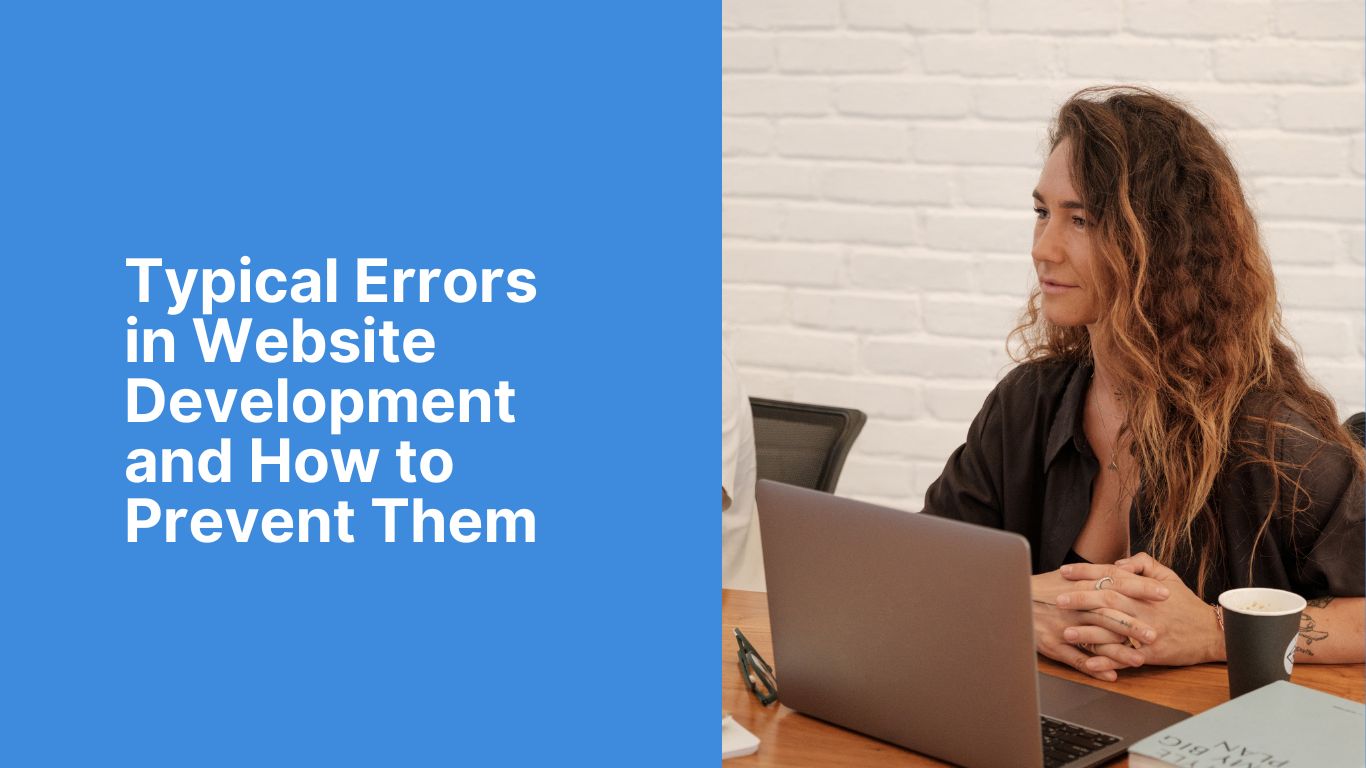Typical Errors in Website Development and How to Prevent Them
A successful website must take into account a number of
technical and strategic factors in addition to a beautiful design. The
functionality and user experience of your website can be greatly improved by
steering clear of typical website construction blunders. This is a guide on
common mistakes and how to avoid them.
1. Neglecting User Experience (UX)
One of the most critical aspects of website development is
user experience (UX). A website that is hard to navigate or doesn’t meet user
expectations can lead to high bounce rates and lost opportunities. Common UX
mistakes include confusing navigation menus, slow loading times, and poor
mobile responsiveness.
How to Avoid It:
Simplify Navigation: Design a clear, intuitive menu that allows users to find what they’re looking for easily.
Optimize Loading Times: Compress images, use efficient coding practices, and consider employing a content delivery network (CDN) to enhance site speed.
Ensure Mobile Responsiveness: Use responsive design techniques so
your site performs well across all devices, including smartphones and tablets.
2. Overlooking Search Engine Optimization (SEO)
In order to guarantee that your website shows up in search
engine results and draws in natural visitors, SEO is essential. Common SEO
mistakes include neglecting keyword optimization, failing to create quality
content, and ignoring technical SEO aspects.
How to Avoid It:
Conduct Keyword Research: Identify relevant keywords and incorporate them strategically into your content, headings, and meta descriptions.
Optimize Technical Aspects: Ensure proper indexing, fix broken links, and use
clean, SEO-friendly URLs. Tools like Google Search Console can help monitor and
improve your site’s SEO performance.
3. Ignoring Mobile Optimization
With an increasing number of users accessing websites via
mobile devices, neglecting mobile optimization can hurt your site’s
effectiveness.
How to Avoid It:
Adopt a Mobile-First Approach: Design your website with mobile users in mind, ensuring that it looks and functions well on smaller screens.
Test on Various Devices: Regularly test your site on different devices and screen sizes to ensure compatibility and performance.
Optimize Touch Elements: Make sure buttons and links are easily clickable on
touchscreens and that forms are easy to complete on mobile devices.
4. Poor Website Security
Website security is essential for protecting your site and
its users from potential threats. Common security mistakes include using
outdated software, weak passwords, and failing to implement secure connections.
How to Avoid It:
Keep Software Updated: Regularly update your website’s software, plugins, and themes to protect against vulnerabilities.
Implement SSL Certificates: Secure your site with an SSL certificate to encrypt data and provide a secure browsing experience.
Use Strong Passwords: Employ robust, unique passwords for all administrative
accounts and change them regularly to enhance security.
5. Neglecting Analytics and Tracking
Without proper analytics, you cannot measure your website’s
performance or understand user behavior. Ignoring this can result in missed
opportunities for improvement and optimization.
How to Avoid It:
Set Up Analytics Tools: Use tools like Google Analytics to track visitor behavior, traffic sources, and conversion rates.
Analyze Data Regularly: Review analytics data to identify trends, understand user interactions, and make data-driven decisions.
Define Goals and Track Conversions: Set clear objectives for your
website and monitor how well it meets these goals through conversion tracking.
6. Using Low-Quality Content
Content is a crucial element of any website. Low-quality
content, such as poorly written text or irrelevant information, can damage your
site’s credibility and user engagement.
How to Avoid It:
Focus on Quality: Create well-written, informative, and engaging content that provides real value to your audience.
Incorporate Visuals: Use high-quality images, videos, and infographics to enhance the content and keep users engaged.
Maintain Consistency: Regularly update your content to keep it fresh and relevant.
By being aware of these common website development mistakes and implementing the strategies to avoid them, you can build a more effective, user-friendly, and secure website. Prioritizing UX, SEO, mobile optimization, security, analytics, and high-quality content will help ensure your website meets the needs of your audience and achieves your business goals.
Whether you're building a new site or improving an existing
one, partnering with the best website development
company in Kanpur can help you navigate these challenges and achieve
your digital goals. With the right expertise and a focus on best practices, you
can avoid these pitfalls and create a website that stands out in a crowded
online marketplace.

.jpg)




